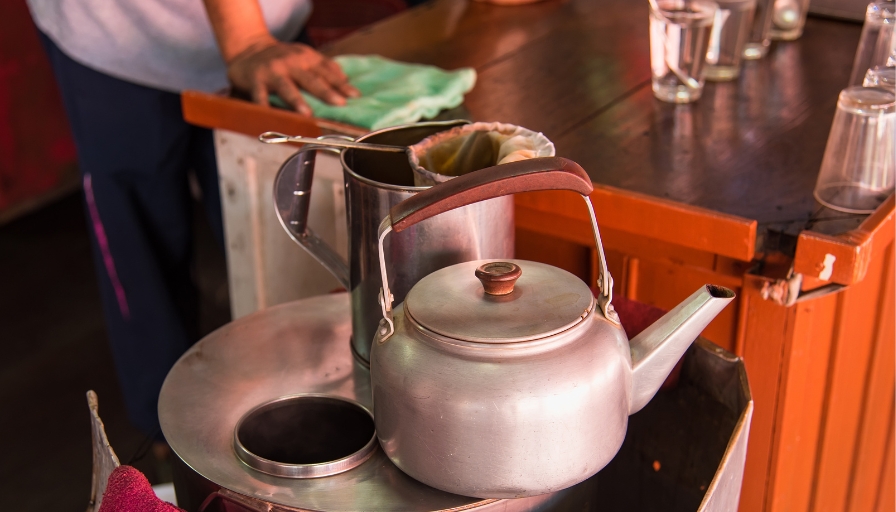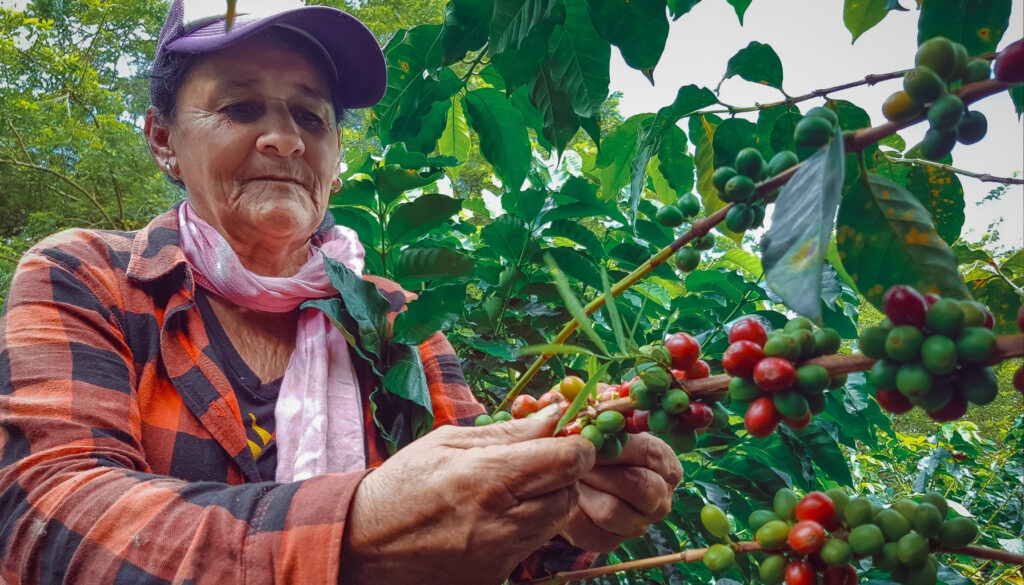Introduction: The Intersection of Coffee and Wellness
For centuries, coffee has transcended mere enjoyment, emerging as a potent symbol of culture, community, and wellness. While many adore the beverage for its rich flavors and invigorating qualities, fewer appreciate its historical significance as a traditional healing agent across various cultures. From ancient Ethiopian rituals to modern-day infusions, coffee has woven itself into the fabric of healing practices, showcasing its multifaceted role as a medicinal brew. In this exploration, we delve into the profound legacy of coffee in traditional healing practices and uncover unique infusions and methods that celebrate its esteemed position in wellness traditions worldwide.
Section 1: The Origins of Coffee and Its Healing Properties
Coffee’s journey begins in the ancient coffee forests of Ethiopia, where legend states that a goat herder named Kaldi discovered the beans. Observing his goats’ energized behavior after consuming the berries, he decided to try them himself. This serendipitous event marked the dawn of coffee consumption, but its role as a healing agent emerged shortly thereafter. Ethiopian shamans harnessed the energizing properties of coffee in sacred rituals, believing it could enhance mental clarity and spiritual awareness.
Through the ages, various cultures integrated coffee into their healing practices. Ancient texts reveal that in the Arab world, physicians praised coffee for stimulating digestion and alleviating headaches. Grounded in folklore and traditional medicine, coffee often appeared as a key ingredient in herbal remedies, suggesting that our ancestors recognized its potential long before modern science could validate it.
Section 2: Coffee in Traditional Ethiopian Medicine
Ethiopia, where coffee was born, boasts a rich heritage that reflects the beverage’s medicinal significance. Ethiopian medicine combines spirituality and healing, with coffee ceremonies integral to this practice. During these elaborate rituals, artisans roast green beans over an open flame, releasing a mesmerizing aroma that captivates the senses. As families gather, the deep symbolism of coffee signifies respect and connection, embodying communal healing.
Doctors in Ethiopia utilize coffee to treat various ailments, leveraging its antioxidant properties and its ability to increase focus and alertness. Coffee is often mixed with traditional spices like ginger or cardamom, believed to enhance its medicinal effects while promoting digestion. In many Ethiopian homes, a cup of coffee acts like an elixir, inviting conversation, connection, and healing among loved ones.
Section 3: Coffee and Ayurveda: A Healing Synergy
In India, the ancient system of Ayurveda embraces coffee’s role within wellness traditions. Although Ayurveda primarily favors herbal infusions, coffee finds its place due to its stimulating qualities. Ayurvedic practitioners often blend coffee with spices such as turmeric, cinnamon, and black pepper, crafting an invigorating drink that ignites the senses while balancing the body’s doshas.
The combination of coffee and spices serves a dual purpose. Not only does it provide an energizing uplift, but it also promotes digestion and acts as an anti-inflammatory. Modern Ayurvedic trends often include coffee in detoxification protocols, allowing enthusiasts to revel in a warming beverage that harmonizes physical and mental health.
Section 4: The Role of Coffee in Traditional Chinese Medicine
Traditional Chinese Medicine (TCM) provides yet another fascinating perspective on coffee’s medicinal potential. Although TCM emphasizes the balance of yin and yang, coffee occupies a unique niche due to its warming nature. Chinese herbalists traditionally used coffee to invigorate the spleen and facilitate better digestion, recognizing its ability to enhance energy levels and combat fatigue.
In specific TCM practices, roasted coffee beans are ground and combined with herbal ingredients to tailor special blends for individual needs. These blends often address issues such as stagnation of qi, promoting circulation, and even addressing respiratory ailments. The artistry involved in creating these unique concoctions speaks to the enduring legacy of coffee in holistic wellness practices.
Section 5: Indigenous Coffee Rituals in Central and South America
Indigenous tribes in Central and South America have long integrated coffee into their spiritual and healing practices. For the Mayans, coffee was not merely a beverage but a sacred offering. They believed that the bean contained the life force of the Earth, and its consumption connected them to the divine. In rituals, they often brewed coffee with other herbs, creating potent infusions that were believed to facilitate communication with ancestors and spirits.
In the Andes, some tribes utilize coffee as a means to combat altitude sickness. By brewing the beans with traditional plants, these communities craft a beverage that not only energizes but also fortifies the body against the demands of high-altitude living. This unique intersection of coffee and indigenous wisdom highlights the legacy of the brew as a traditional healer.
Section 6: The Modern Renaissance of Coffee in Wellness
With the recent resurgence in wellness practices worldwide, coffee has found a renewed place in health and fitness communities. Many contemporary wellness enthusiasts embrace coffee not just for its taste but also for its health benefits, turning to specialty brews infused with superfoods, adaptogens, and other healing ingredients.
Savvy entrepreneurs have begun crafting elixirs that blend high-quality coffee with ingredients like collagen, turmeric, and medicinal mushrooms, thus modernizing ancient practices. This innovative fusion pays homage to traditional healing while appealing to a modern audience seeking vibrant, health-boosting alternatives.
Section 7: The Cultural Significance of Coffee Ceremonies
Coffee ceremonies around the world provide insight into how cultures honor the drink as a healing beverage. The Ethiopian coffee ceremony stands out for its elaborate preparation and communal aspect. As participants engage in the ritual, they partake in a healing process that fosters collective bonding, stress relief, and emotional well-being.
In Turkey, the art of coffee preparation intertwines with fortune-telling. The grounds left in the cup are often used to read fortunes, adding a layer of mystique to the experience. By invoking symbols of hope and possibility, coffee ceremonies transcend mere consumption, becoming a form of healing that nurtures the spirit.
Section 8: Coffee as a Natural Anti-Inflammatory Agent
Recent studies have begun to substantiate what many traditional practices have long suggested: coffee possesses anti-inflammatory properties. Compounds such as chlorogenic acids and polyphenols present in coffee have demonstrated the ability to reduce inflammation and oxidative stress, offering potential benefits for conditions ranging from arthritis to cardiovascular disease.
Moreover, the art of brewing can amplify these effects. Methods such as cold brews and French presses can help retain more of these beneficial compounds, presenting coffee as a versatile ally in holistic health practices. By incorporating these techniques, one can create a coffee experience that aligns with wellness goals while savoring the depth of flavors.
Section 9: Exploring Unique Coffee Infusions
In exploring the realm of traditional healing, unique coffee infusions beckon. From the spicy Turkish chai coffee to the sweet Thai iced coffee infused with coconut milk and spices, these blends marry tradition and flavor. Each infusion is steeped in its cultural narrative, offering not just a drink but a storytelling experience that connects the drinker to the land and its people.
Additionally, consider the emerging trend of mushroom coffee, which combines coffee with adaptogenic mushrooms like lion’s mane or reishi. This modern infusion presents an exciting evolution, merging ancient wisdom with contemporary health practices, providing a unique avenue for both pleasure and wellness.
Section 10: Coffee’s Role in Stress Relief
Caffeine, the active compound in coffee, has long been appreciated for its stimulating effects. However, its impact on mental wellness is profound as well. Many cultures view coffee as a way to promote mindfulness, balance, and clarity. Engaging in communal coffee rituals fosters social connections, alleviating stress and inducing a sense of calm and belonging.
Furthermore, studies suggest that moderate coffee consumption may be linked to reduced rates of depression and anxiety. While the scientific community continues to unravel the complexities of coffee’s effects on mental health, its legacy as a comforting, communal beverage persists and remains an integral part of many cultures’ healing practices.
Section 11: Coffee and Spiritual Practices
In various cultures, coffee serves as a bridge between the physical and spiritual realms. In some South American countries, shamans utilize coffee in healing ceremonies, believing that it enhances the connection to the spiritual world. The infusion of sacred herbs and coffee creates a potent mix, fostering both individual and communal healing experiences.
Furthermore, in Sufi traditions, coffee represents a way to attain spiritual enlightenment. By sharing coffee, individuals create a bond that transcends physical existence, elevating the experience into a spiritual communion. This aspect of coffee reinforces its role not only as a beverage but also as a significant channel for holistic healing.
Section 12: Coffee and the Art of Mindfulness
The modern practice of mindfulness has found a welcoming companion in coffee. More than just a beverage, coffee encourages a moment of pause in a fast-paced world. Taking the time to brew and savor a cup of coffee can be an act of mindfulness itself—an opportunity to appreciate each step of the process, from grinding the beans to inhaling the aroma.
This mindful approach aligns perfectly with traditional healing practices that emphasize the importance of being present. Engaging with coffee in this manner helps individuals connect with their senses, promoting relaxation and mental clarity. With each sip, coffee becomes not just nourishment but also a catalyst for healing and well-being.
Section 13: The Global Coffee Experience: Healing Through Travel
As coffee lovers embark on global journeys, the experience of tasting traditional brews becomes a healing adventure. Countries like Colombia and Brazil showcase their unique coffee cultures and rituals, inviting travelers to engage in local practices that celebrate the drink’s medicinal properties.
Participating in coffee tours allows travelers to witness the labor and dedication that goes into each cup, often revealing local healing traditions. Whether it’s enjoying a freshly brewed cup in a family-run café or participating in a village coffee ceremony, the experience can be one of profound connection and healing on multiple levels.
Section 14: Ethical Coffee Sourcing and Wellness
As our understanding of wellness evolves, so does the importance of ethical sourcing in the coffee industry. Many traditional healing practices emphasize the significance of treating the earth and its resources with respect. This ethos extends to coffee, where sustainable farming practices and fair trade agreements allow consumers to support growers committed to their communities’ health and well-being.
By choosing ethically sourced coffee, consumers enhance their wellness experience, ensuring that their enjoyment contributes positively to social and environmental health. This connection to mindful consumption also serves as a form of personal healing, nurturing a sense of integrity and purpose.
Section 15: The Science Behind Coffee’s Medicinal Qualities
While traditional practices have long embraced coffee’s healing properties, modern science continues to explore its benefits. Research indicates that coffee contains over a thousand compounds, many of which exhibit anti-inflammatory, antioxidant, and antimicrobial properties. These compounds contribute to coffee’s potential to support overall health.
Studies suggest that regular coffee consumption may also lower the risk of certain diseases, including Parkinson’s, Alzheimer’s, and type 2 diabetes. By marrying ancient wisdom with contemporary research, we gain a fuller appreciation of coffee’s role as a traditional healer, revealing how this beloved beverage has earned its esteemed place in our lives.
Section 16: The Rituals of Coffee Brewing
The act of brewing coffee itself is steeped in tradition and ritual, serving as a therapeutic activity that promotes well-being. Various methods—be it traditional espresso machines, pour-over techniques, or simple French presses—invite individuals to engage with the process, allowing for a moment of reflection.
Each brewing method carries its cultural significance, often connecting the brewer to ancestral practices. As one immerses oneself in the art of preparation, the ritual of brewing transforms into an intentional act of wellness, enhancing the experience of sipping the final cup.
Section 17: Personalizing Your Coffee for Healing
Personalization has become key in the modern wellness landscape, and coffee is no exception. Individuals are now customizing their brews, incorporating herbal elements that cater to specific health needs. Adding herbs like ashwagandha to coffee not only enhances flavor but also introduces adaptogenic qualities that help balance stress levels.
Moreover, infusing coffee with natural sweeteners like honey or flavoring agents such as vanilla can elevate the experience. By tailoring coffee to individual preferences and health goals, enthusiasts can delve deeper into the beverage’s healing potential.
Section 18: Coffee in Skin and Body Care
Interestingly, coffee has extended its healing properties beyond the cup, finding its way into beauty and wellness rituals. The antioxidant-rich properties of coffee lend themselves well to skincare, where coffee scrubs and masks can invigorate the skin and promote circulation.
Traditional cultures have harnessed the power of coffee in body care, creating natural remedies that enhance skin health. From exfoliation to rejuvenation, coffee’s versatility solidifies its standing as an indispensable element of both wellness and beauty.
Section 19: Community and Connection Through Coffee
As we reflect on coffee’s role in traditional healing practices, it becomes clear that its true power lies in its ability to foster connection. Whether enjoyed among friends, shared during rituals, or served in a café, coffee creates spaces for conversation, reflection, and healing.
Communities around the world use coffee as a vehicle for connection, nurturing social bonds and emotional resilience. In many cultures, coffee signifies hospitality and warmth, enabling individuals to support one another through shared experiences.
Section 20: Conclusion: The Enduring Legacy of Coffee in Healing
Throughout history, coffee has transcended the boundaries of mere consumption, establishing itself as a revered elixir of healing. From ancient rituals to modern infusions, its journey reflects the wisdom of traditional practices that recognize the importance of connection, mindfulness, and well-being.
As we sip our favorite brews, let us honor coffee’s profound legacy as a traditional healer. By embracing its rich cultural significance and exploring the myriad ways it can enhance our lives, we create a deeper appreciation for this ancient beverage—a timeless symbol of communal healing, vitality, and connection.
Additional Insights: Coffee’s Future in Wellness
As we look ahead, it is crucial to acknowledge the growing awareness of coffee’s potential in the wellness industry. Consumers are increasingly drawn to products that align with holistic health practices. This trend signifies a shift where coffee is no longer seen merely as a source of caffeine but as an essential element of well-being.
Furthermore, emerging technologies and research hold the promise of unlocking even more benefits from coffee. Advances in brewing techniques and extraction methods reveal new ways to maximize the health properties of coffee, allowing people to enjoy its flavor alongside its myriad health benefits.
Investing in education about the origins of coffee and its medicinal qualities can empower consumers to make informed choices, fostering a deeper relationship with the beverage. By promoting awareness and appreciation for traditional practices, we can fully realize coffee’s potential as a tool for health and healing.
In essence, as coffee continues its journey through time, we must embrace its legacy while advocating for sustainable practices and ethical sourcing. By doing so, we foster not only personal wellness but also contribute to the greater good, ensuring that coffee remains a cherished source of healing for generations to come.
Ultimately, coffee embodies more than just caffeine; it signifies a global tradition of care, connection, and healing that resonates across cultures and time. Let us celebrate and honor this ancient brew, recognizing its role in not just our lives but also the lives of countless communities around the world.


